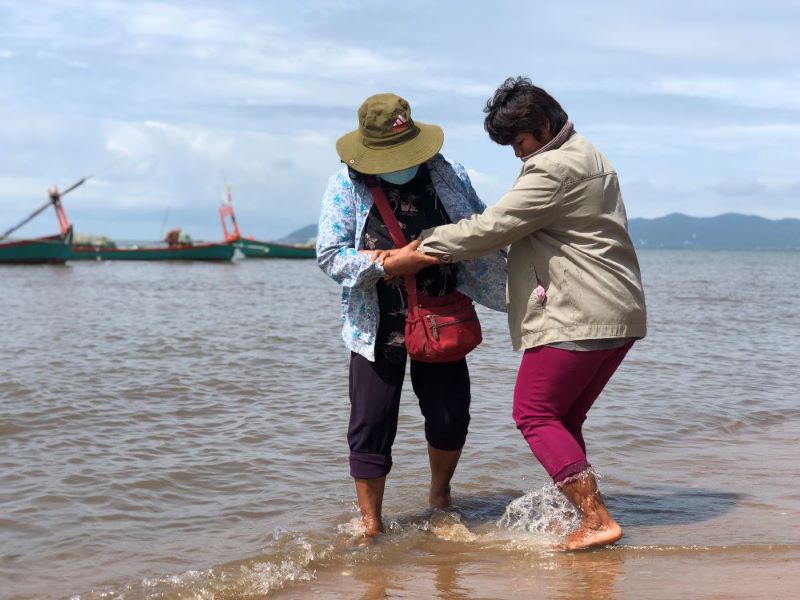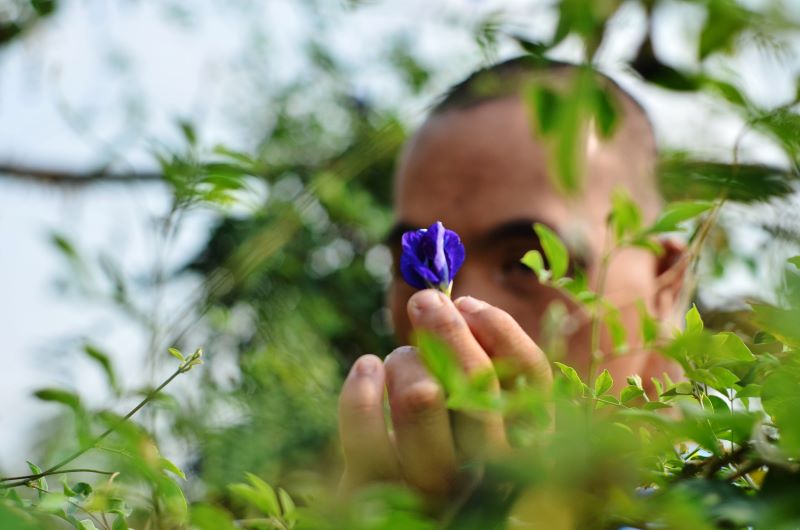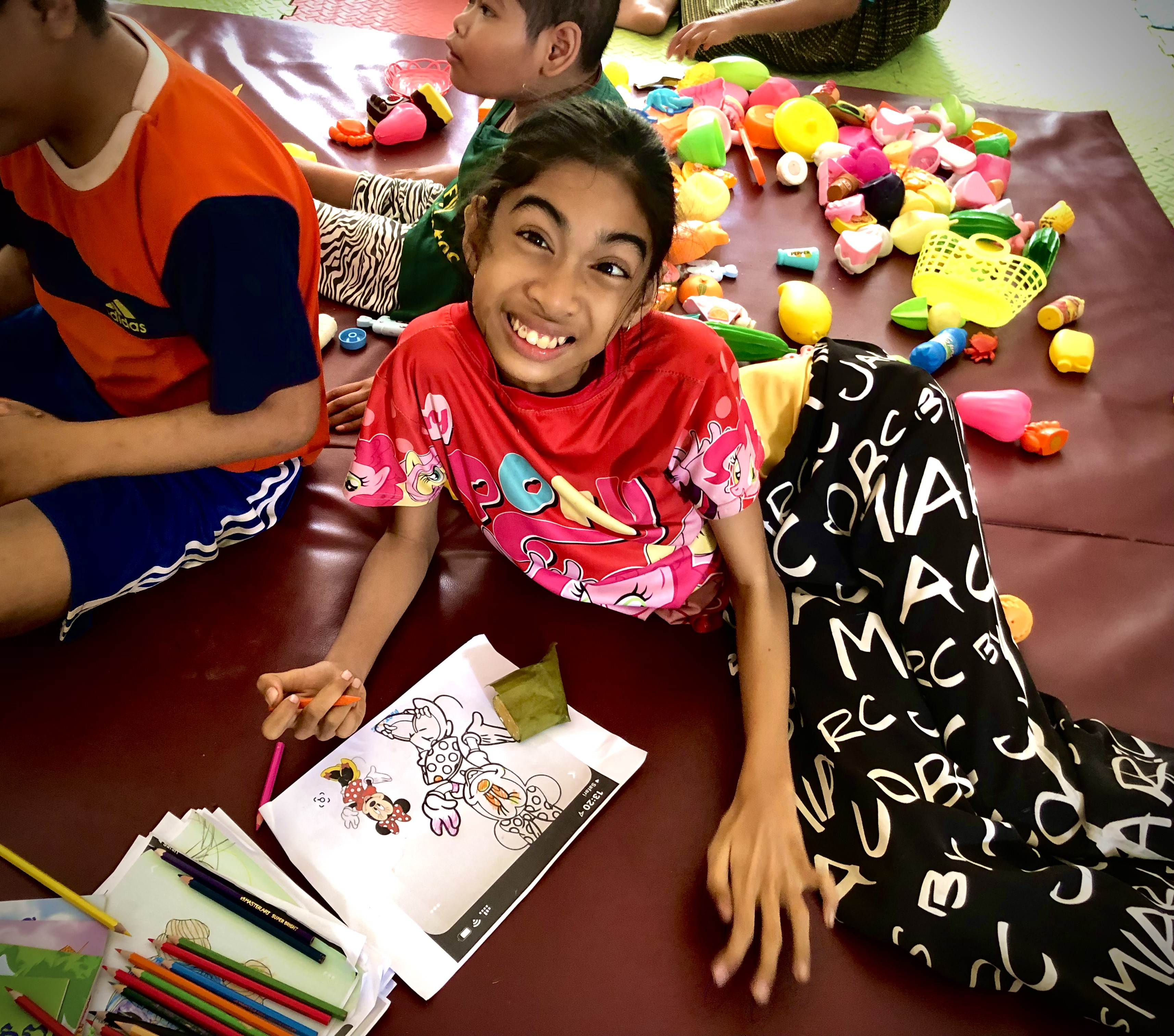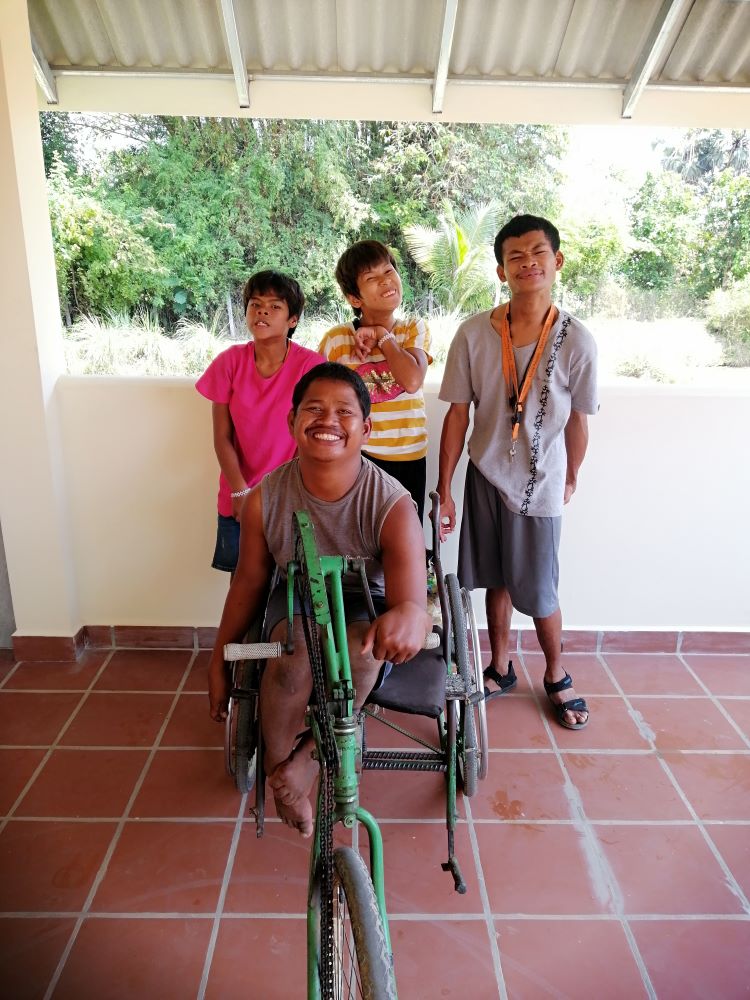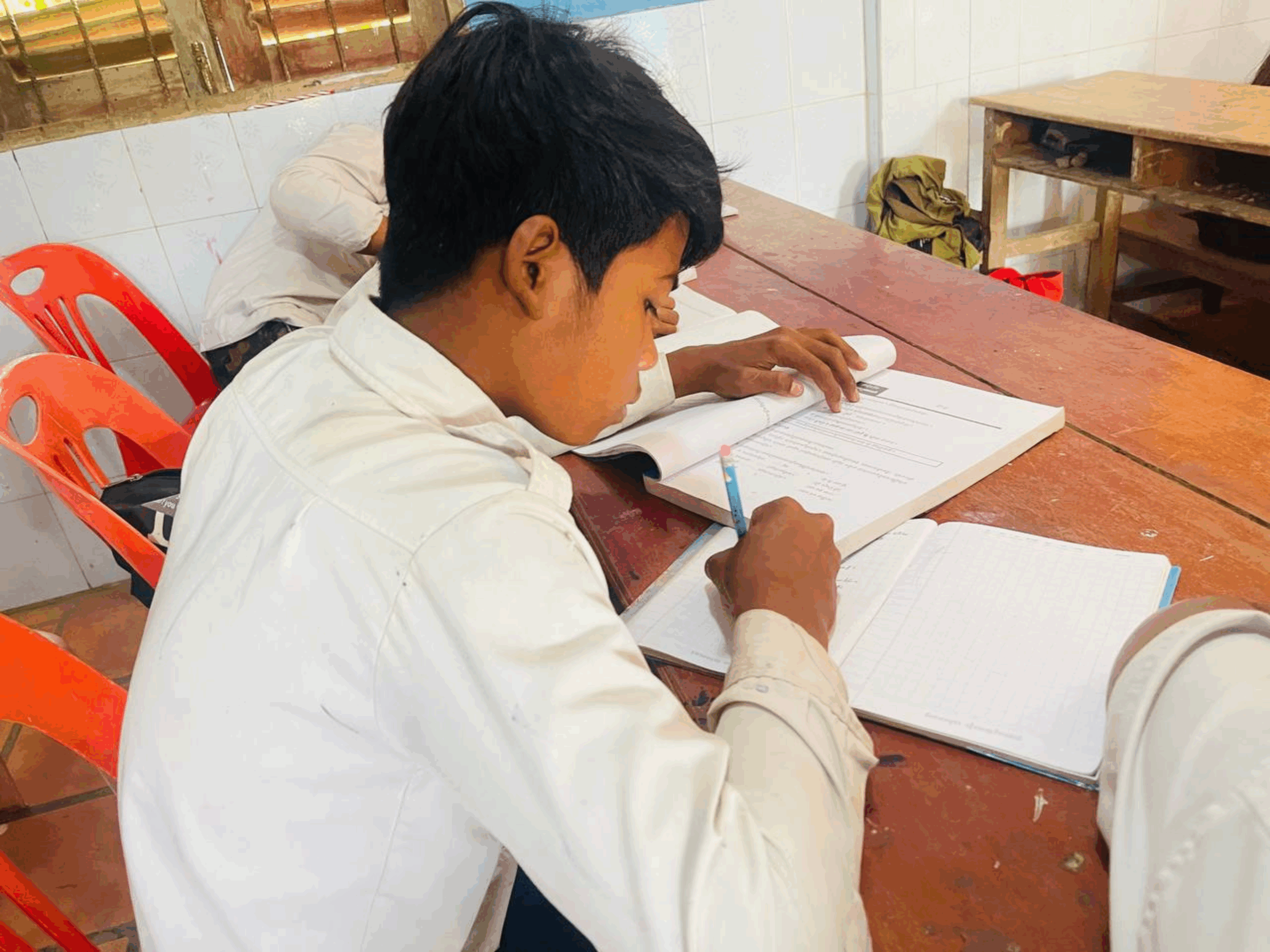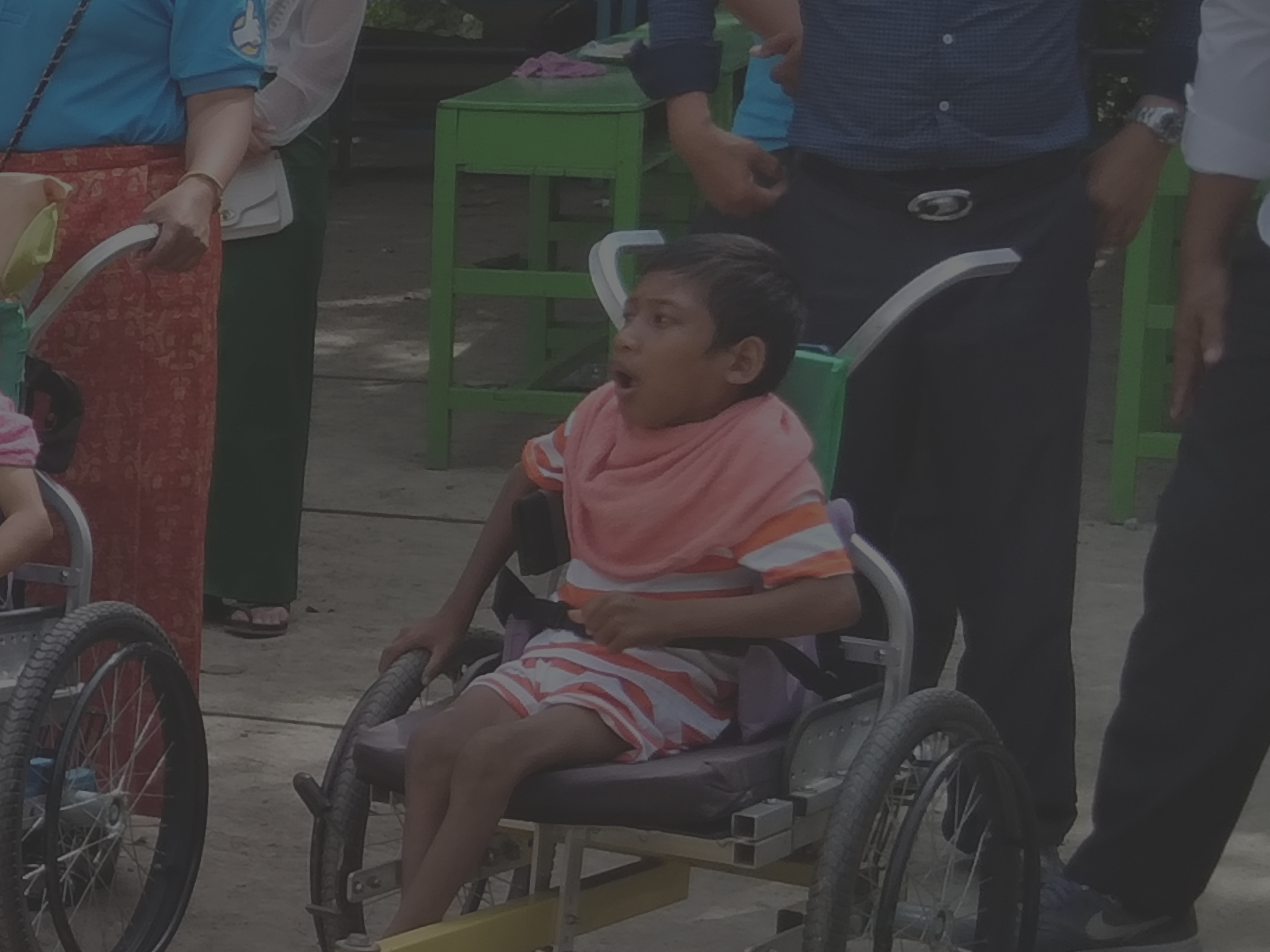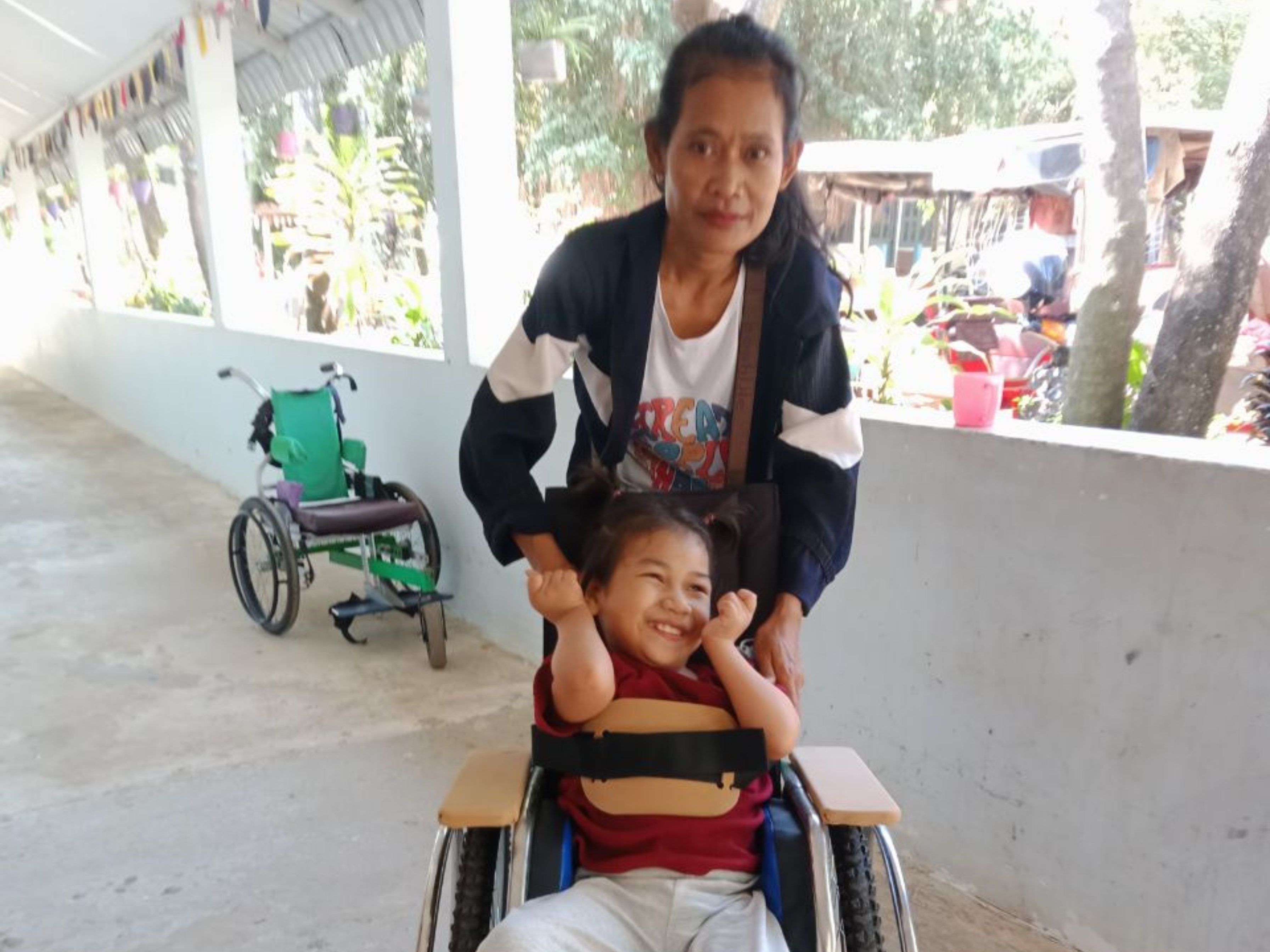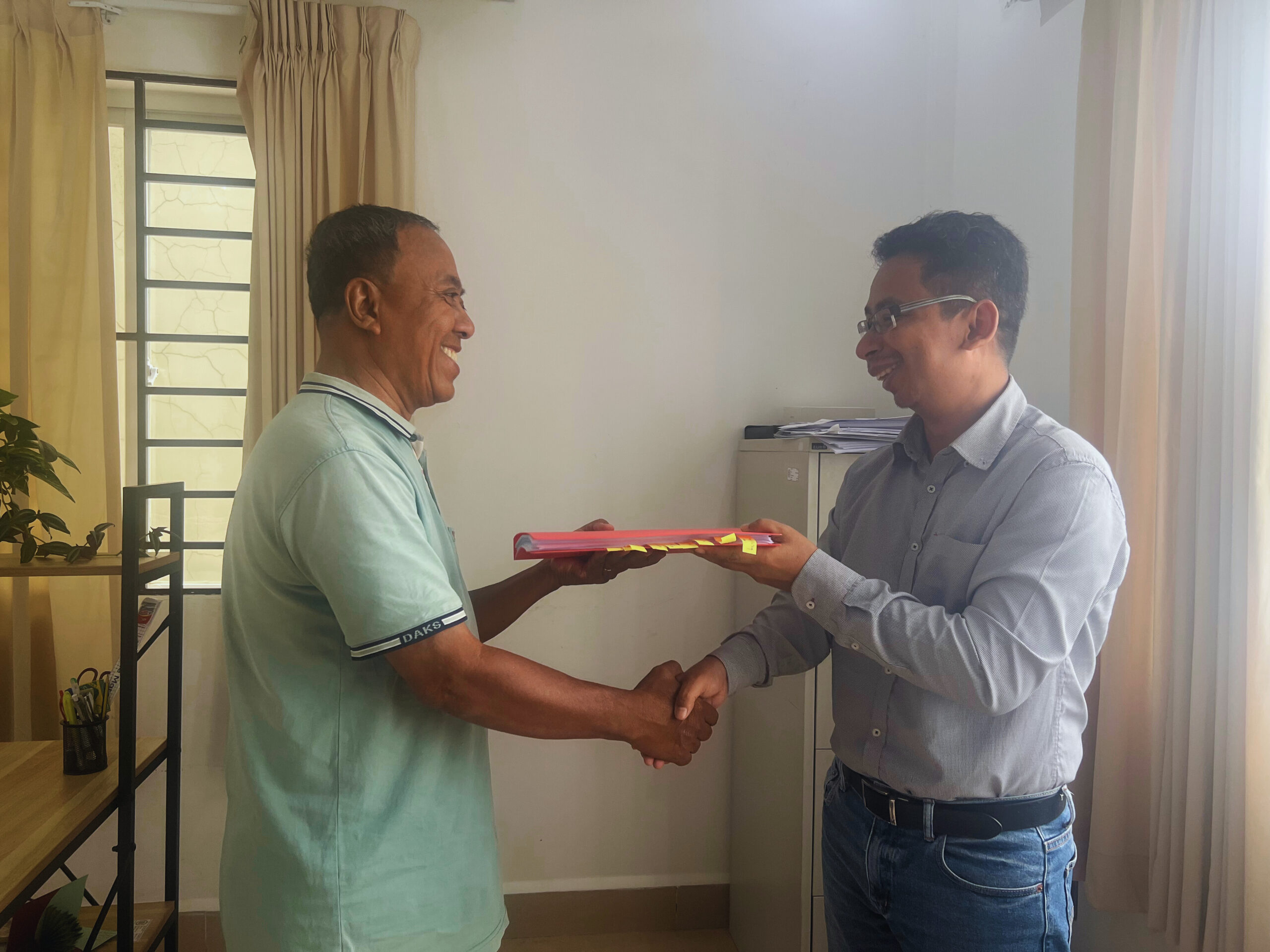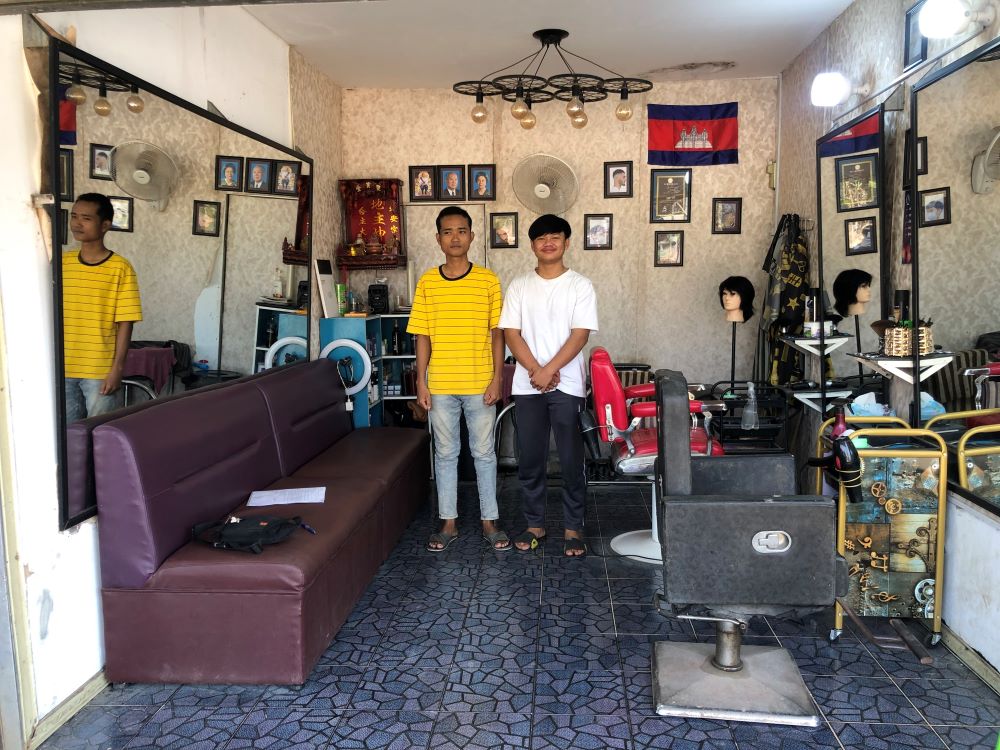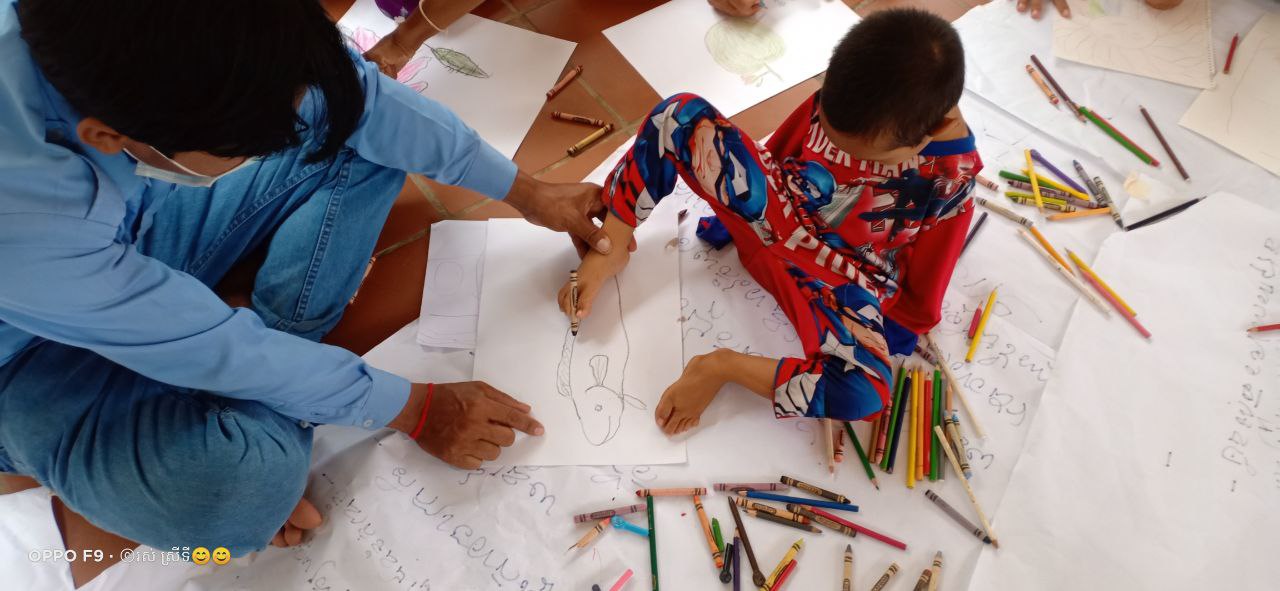
Disability
People with disabilities, especially children and people with intellectual disabilities, remain one of the most marginalised populations in Cambodia. Cultural misconceptions rooted in the belief that disabilities are punishment for wrongdoings in a person’s previous life, a lack of understanding about disabilities, and inaccessibility to disability-specific resources all contribute to exclusion of children and people with disabilities.
Our programmes seek to address these issues to ensure children and adults with disabilities and their family members have access to information and opportunities to ensure social inclusion and participation to achieve their full potential.
Outreach
Often the first step to identifying children with disabilities in the community or children with disabilities experiencing neglect. Outreach is essential to help families understand their child’s specific disability and provide recommendations for care and interventions.
Education and information can alleviate fears and misconceptions families have about their child’s disability. Training on simple techniques can improve the mobility of children with physical disabilities.
Damnok Toek’s trained Outreach teams travel to communities to help assist families, encourage participation in parent support groups, and inform parents about respite care offered at the Day Care Centre.
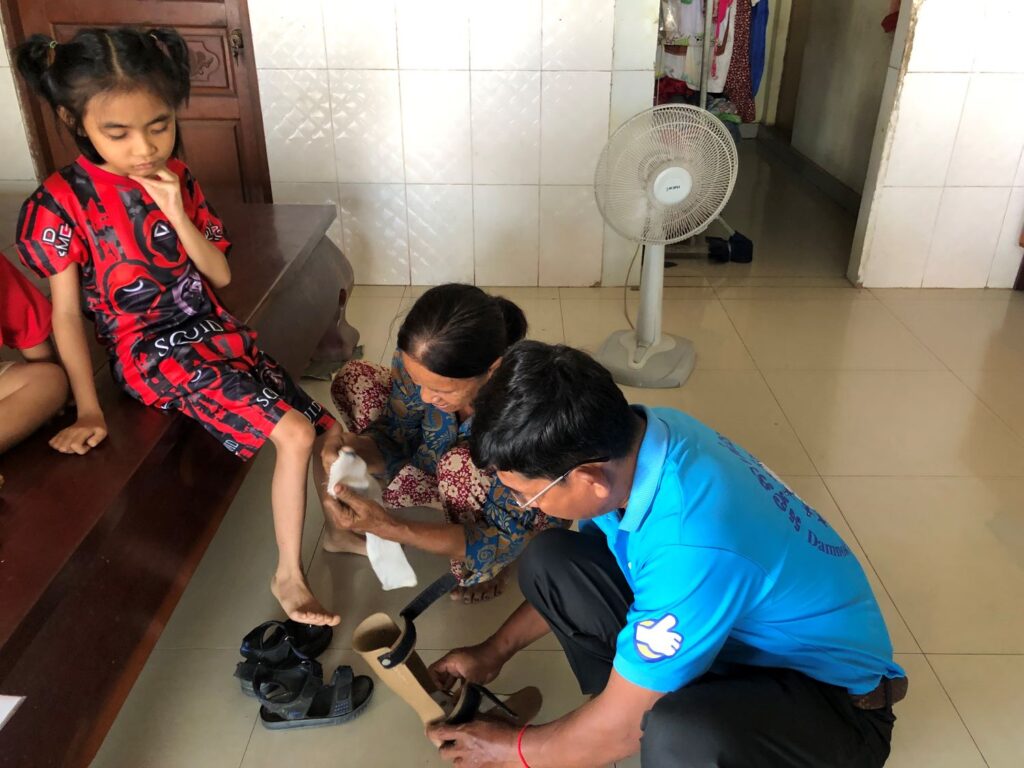
Learn More About the Outreach Programme
Day Care Centre
Being the primary caregiver of someone with a disability requires special care and attention and can be a full-time job. For poor families in Cambodia, who need to work to support their families and have extremely limited education about disability-specific care, Damnok Toek offers ‘respite care’ at the Day Care Centre so families can leave their children in a safe environment during the day while they work.
The Rehabilitation and Day Care Centre provide support to children with disabilities and their families through three main activities:
-Physical therapy exercises for children with disabilities;
-Creative and leisure activities adapted to each child according to their disability;
-Social stimulation so children can continue their development and growth.
Help Support This Project
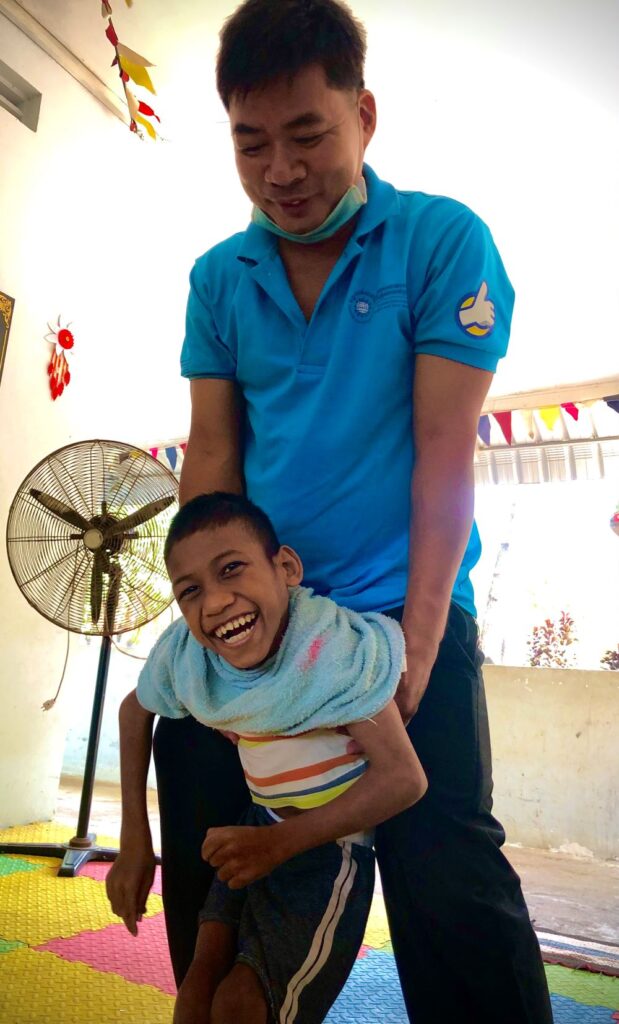
Alternative Care
Unfortunately, many children with disabilities are still abandoned, abused, or neglected by their families and require alternative care to ensure their safety.
The Small Group Homes project was developed out of necessity for a safe space for children with disabilties who have been abandoned by their families to live. These homes provide children with disabilities full-time care and a family-like environment as they grow up with other children with disabilities and parent figures.
Damnok Toek conducts family tracing in the hopes that children can reintegrate into a family-based, kinship, or foster care.
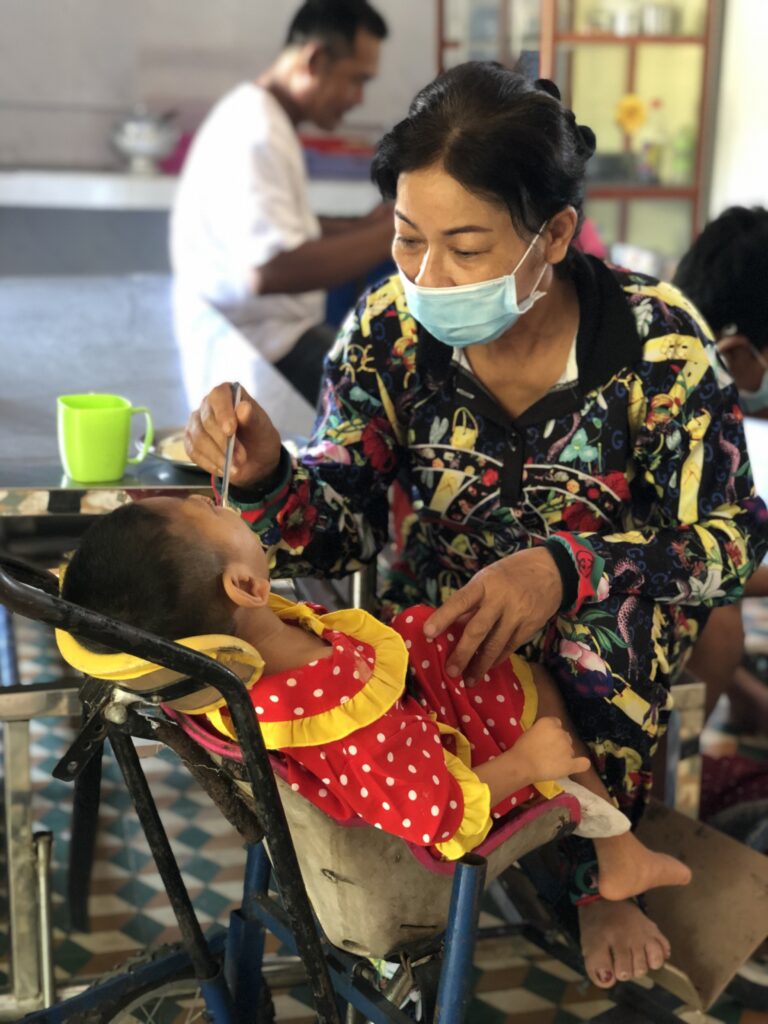
Semi-Independent Living
The Semi-Independent Living Arrangement (SILA) project empowers people with disabilities to live independently in the community. SILA provides the opportunity for residents to practice living independently while still having access to support and resources.
Residents learn life skills, such as money management, operating a smartphone, travelling and arranging transport (including accommodations for disability accessories like wheelchairs) until they feel confident and prepared to live entirely independently. In addition, DT provides vocational training in farm work, simple machine repair, cooking, and tea production and packaging so residents have work experience they can use to get jobs in the community.
Kep Farm and Residence
The farm and residence provide long-term safe housing in a communal environment, full-time care, and life skills development through therapeutic farm work.
Residents work on the farm a few hours a day, helping to plant crops, harvest produce, package tea for sale, and care for chickens.
The farm provides residents an opportunity for meaningful contributions to and participation in their community. Produce grown on the farm is sold at the local market and to local vendors. This direct interaction between residents with disabilities and community members is a vital part of the destigmatisation process.
Regular outside activities including beach trips and voluntary beach clean-ups, are additional opportunties for residents to be visible in the community and also participate in relaxing and fun inclusive activities.
